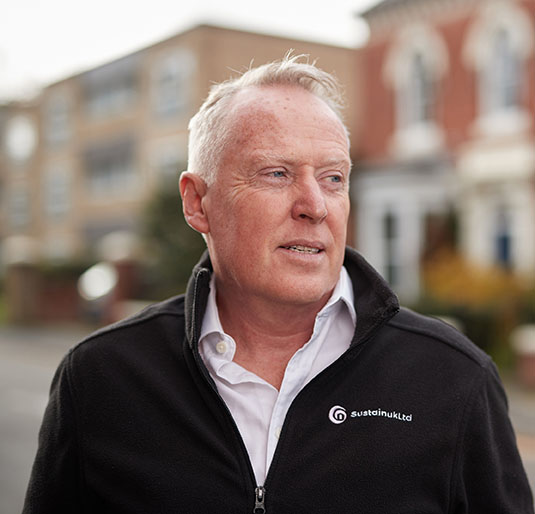On Tuesday 29th August, the much-talked-about Private Members’ Bill, the Supported Housing (Regulatory Oversight) Act, will come into force. This new legislation will affect supported housing providers such as Sustain UK, by setting a framework for new systems for the industry.
I’d like to start by saying that I’m encouraged by the aims of the bill and agree that action must be taken to ensure there are minimum standards of housing and support for vulnerable people.
We are all only too aware that there are people who operate in our industry with impunity and without care or empathy, preying on the vulnerable and manipulating the system for financial benefit.
Sustain UK has recently begun sharing personal stories from some of our residents, and their past experiences of non-existent support and substandard homes of multiple occupation are often saddening and frustrating.
Clearly, a key aim of this new legislation must be to give teeth to the system to identify and shut these people down. However, at this stage of proceedings, I’d say the bill raises more questions than it answers on how this will be achieved.
Just the start
We are still on the starting line, with the next steps being industry consultations, and the appointment of an advisory board to the Secretary of State for Levelling Up, Housing and Communities.
The devil will be in the detail, and only once this process is complete will we be able to analyse how the newly defined standards will be enforced and maintained.
It’ll be interesting to see how this is achieved, as a lot of this practical work is likely to be handed over to local authorities, and we know from our own experiences of working closely with Birmingham City Council that its resources are already stretched.
In my experience, you can only set and maintain standards through continuous inspection and enforcement, and this takes time, money, patience and determination.
For example, Sustain UK houses and supports 1,800 people in around 400 properties across Birmingham, and half of our staff are dedicated to inspections, ensuring that homes are visited around four times a year, as well as working with home providers to raise standards when necessary.
This begs the question of who will inspect the 650,000 supported homes across the UK?
Who will manage or shut down failing or negligent housing providers?
And, crucially, what will happen to the thousands of vulnerable people that they house?
Growing levels of homelessness
Despite efforts to try and reduce the number of supported beds in Birmingham, the figures have continued to creep up across the city, as the exempt market is now picking up increasing numbers of people forced out of the private rental sector. This is often due to increasing rents compounded by a shortage of properties.
Without wanting to sound negative, this only further serves to highlight that the problems we see in supported housing are yet another symptom of the wider housing market crisis.
Supported Housing has, over time, become something of a dumping ground for people and properties, and we must move away from this model if we are to raise industry standards.
This will be challenging while we’re increasingly housing working poor, who are categorised as ‘under threat of homelessness’ by existing guidelines, and compounded by the fact that substance dependency and mental health issues are also on the rise.
It’s time to engage
But we are where we are, and at this stage, I’m very keen that Sustain UK be part of the consultation process.
We’re certainly not perfect, because its not easy working with people often living in chaotic circumstances, but I know we have a lot of constructive knowledge and experiences to share. We want to be part of the process.
I’m also hopeful that the supported housing bill will help reboot our relationship with the Regulator of Social Housing, as my instincts tell me that government-led standards and oversight will free the regulator to engage with the likes of Sustain UK more confidently, particularly in the knowledge that poor and rogue operators are being removed from the system.
So, come Tuesday, I will look forward to the next stages of the Supported Housing Act with a sense of cautious optimism, because action clearly must be taken, and time will tell if this is indeed a first step to something better.


